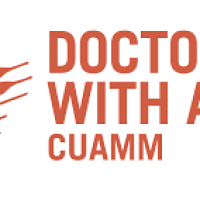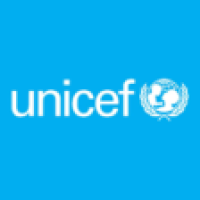The Programme Officer is responsible for coordinating programme or projects within the assigned portfolio.
Africa Rural Climate Adaptation Finance Mechanism Uganda (ARCAFIM Uganda) is an IFAD-led initiative to bridge the gap between global and local availability of climate adaptation finance and to address the urgent need to scale up climate adaptation investment in small-scale agriculture in Uganda. The IFAD Uganda country office will be responsible for overall management of ARCAFIM Uganda grant activities [as outlined in the Supplementary Funds Agreement between IFAD and the Government of Denmark] including: mobilizing additional climate financing for adaptation investments in Uganda; mainstreaming the adoption of international standards for climate adaptation financing; building the climate adaptation capacity of small producers and agri-businesses (with a focus on youth and women) and financial intermediaries; and developing and disseminating knowledge management activities regarding climate adaptation financing.
The IFAD Uganda office will lead the climate finance mobilization and knowledge management activities jointly with IFAD Regional Office in Nairobi and IFAD Private Sector Financing Program to implement other activities connected to the grant.
Key Functions and Results
1.COUNTRY STRATEGY AND COUNTRY PROGRAMME SUPPORT: The Programme Officer provides a solid understanding of international practices and of IFAD’s policies and procedures to ensure activities of a programme or project within her/his assigned portfolio enhance the related technical quality of IFAD ‘s activities within the relevant country, through effective programme (COSOP) and project (grants and loans) design, supervision, implementation, monitoring and evaluation, reporting (PSR) and completion (PCR) activities. The incumbent also provides substantive contributions toward the development of advice and technical guidance in support of sustainable government strategies, policies and programmes to improve agricultural development and rural poverty reduction. The Programme Officer is further accountable for capacity building activities including identifying, analyzing, documenting, harmonizing and disseminating both national and local issues as well as conditions and best practices and lessons learned among partner development agencies. Capacity building activities will include coordinating meetings, workshops and seminars with project management teams, government, partners and other stakeholders.
COUNTRY OFFICE SUPPORT:
The Programme Officer is accountable for day-to-day administration and reporting in support of the Supervisor and for supervision of assigned Country Programme Associate/Assistant. In addition to human resources management, the incumbent has accountability for financial and material resources and related processes including managing contracts for services. The incumbent provides inputs to budget preparation and monitors expenditures, manages contract completion and certifies payments.
SUPPORT TO PARTNERSHIP BUILDING:
As a key DCO team member, the Programme Officer enhances IFAD’s relationships and collaborations with in-country counterparts through the identification of synergies and proposing coordinated strategies with multilateral/bilateral donors and civil-society organizations involved in agricultural development and rural poverty reduction. The incumbent establishes and maintains counterpart contacts to promote programme and project collaboration and harmonization as well as identifies financing opportunities with other donors.
POLICY DEVELOPMENT/KNOWLEDGE MANAGEMENT:
The Programme Officer participates in relevant policy meetings and events of interest to IFAD’s target groups and which involve the government, donors, and civil society, including NGOs, in order to develop an enabling environment for sustainable, pro-poor development. From an international best practices perspective, the incumbent analyzes evidenced based recommendations from projects to link the realities on the ground and the voices of the poor with the policies and programmes of the government. The incumbent contributes to IFAD’s policy intelligence with regular updates and information exchange with her/his Supervisor on relevant policy discussions and ensures a continuous knowledge flow with peers in accordance with the knowledge management mechanism in place. This will serve to enhance the empowerment of the rural poor and disadvantaged so that they can enter into partnerships at all levels of policy dialogue.
MANAGERIAL FUNCTIONS:
The Programme Officer is accountable for integrity, transparency, and equity in the management of IFAD resources.
PROJECT MANAGEMENT AND COORDINATION of ARCAFIM Uganda:
The Programme Officer ARCAFIM Uganda is responsible for the overall management and coordination of ARCAFIM Uganda grant activities in connection with the Supplementary Funds Agreement between IFAD and the Government of Denmark. They are accountable for integrity, transparency, and equity in the management of Danish resources allocated for the implementation of this initiative.
Supervise implementation of all grant activities related to ARCAFIM Uganda including coordination and management of implementing consultants, service providers, and other collaborators, and review and approval of related outputs and documents including project reporting.
Develop and implement a climate finance mobilization strategy to increase climate financing flows to small-scale agricultural climate adaptation projects in Uganda.
Develop and supervise the knowledge management activities of the Regional ARCAFIM Programme including development of briefs and technical guidelines, documentation of best practices, organization of annual workshops, and facilitation of stakeholder participation in global events.
Coordinate with IFAD Regional Office and IFAD Private Sector Financing Programme and support their implementation of activities to: (i) build the climate adaptation capacity of small producers and agri-MSMEs, with a focus on gender-responsive products and practices; and (ii) mainstream the adoption of international climate adaptation standards and build the climate adaptation financing capacity of local financial institutions.
Develop a pipeline of participating financial institutions (e.g. microfinance institutions, cooperatives, SACCOs, VSLAs) and build their climate adaptation capacity to participate in ARCAFIM.
Support financial institutions (e.g. microfinance institutions, cooperatives, SACCOs, VSLAs) to develop and deploy innovative green finance instruments and financing approaches through a gender lens,
Regularly monitor participating FIs portfolios to ensure ARCAFIM funds are deployed/disbursed to the right cause and objectives are achieved.
Regularly monitor participating FIs to ensure compliance with agreed upon basic and specialised fiduciary standards to anable compliaince with international fiduciary standards such as those of the Green Climate Fund(GCF).
Develop and manage relationships with key private and public sector stakeholders in the climate finance ecosystem to enhance visibility to ARCAFIM Uganda and accelerate mobilization of climate adaptation financing to the country.
Establish the ARCAFIM Uganda Steering Committee (SC) and organize periodic meetings of the SC.
Lead and coordinate supervision and/or implementation support missions of ARCAFIM Uganda.
Key Performance Indicators
The Programme Officer maintains the standards for IFAD’s competence in development in her/his assigned portfolio. The incumbent has demonstrated technical expertise and credibility in portfolio management and creates the foundation for IFAD’s capacity and reputation for programme delivery and enhances its recognition as a reliable development partner. The incumbent provides substantive support in the development of country strategy, project design, partnership building and policy development and the foundation for enhancing sustainable government strategies and policies to improve the livelihoods of the poor and other disadvantaged groups.
The Programme Officer shall lead the mobilization of increased volumes of international and regional climate finance to climate adaptation investments in Uganda. They support knowledge management of CCA investments and replication across the region. They shall facilitate the introduction of international standards for climate change adaptation finance and support enhancing the climate change adaptation capacity of local financial institutions, small producers and agricultural micro, small and medium sized enterprises (MSMEs).
Working Relationships
In the context of programme development and delivery, the Programme Officer ensures the exchange of information, advocates for programme and policy enhancements and ensures consistency and reliability in the provision of development assistance to the government. In collaboration with other members of the UN country team, bi-lateral development agencies, NGOs and country programme counterparts, the incumbent establishes and maintains relationships and projects the image of IFAD as a credible/reliable partner striving for harmonization of development activities.
The ARCAFIM Uganda PO will proactively:
- Engage with the Embassy of Denmark in Uganda on all ARCAFIM-linked issues
- Identify and liaise with other climate finance stakeholders and initiatives building synergies and collaborations.
- Collaborate with aBi Finance and Uganda Ministry of Finance Climate Finance Unit, particularly with regards to ensuring alignment and use of the ARCAFIM and aBI climate adaptation taxonomies.
- Collaborate with IFAD Regional Office and IFAD Private Sector Financing Programme to implement all elements of ARCAFIM Uganda grant activities.
- Coordinate periodic reporting to the Embassy of Denmark on ARCAFIM operations as per the Supplementary Funds Agreement and contribute to the periodic reporting to ARCAFIM financiers per GCF agreement.
Job Profile Requirements
Organizational Competencies:
Level 1:
- Building relationships and partnerships – Builds and maintains effective working relationships
- Communicating and negotiating – Communicates effectively; creates understanding between self and others
- Demonstrating leadership – Personal leadership and attitude to change
- Focusing on clients – Focuses on clients
- Learning, sharing knowledge and innovating – Continuously seeks to learn, shares knowledge & innovates
- Managing performance and developing staff –
- Managing time, resources and information – Manages own time, information and resources effectively
- Problem-solving and decision-making – Demonstrates sound problem-solving and decision-making ability
- Strategic thinking and organizational development – Personal influence
- Team working – Contributes effectively to the team
Education:
– Education includes Advanced university degree from an accredited institution listed on https://whed.net/home.php in rural development, agriculture, economics, rural finance, development policy or other job-related fields is required
(*) Note: For internal candidates, this requirement will be assessed in line with the provisions set forth in IFAD’s Human Resources Implementing Procedures
Experience:
- Minimum of 5 years of experience in development finance, climate finance, banking and/or agricultural finance, gained while working for leading international and commercial financial institutions, foundations, and/or donors, with strong understanding of lending institutions and financing of smallholder farmers and agri-businesses.
- Existing network or ability to develop network of partners in climate finance ecosystem including government agencies, financial institutions, community organizations, and NGOs, as well as fintech and agtech companies.
- Knowledge of Sub-Saharan Africa (including Uganda preferred) commercial and rural financial systems and mobile money/digital solutions.
Languages:
- English (4 – Excellent)
Skills:
- IFAD partners: Knowledge of IFAD’s partners’ functioning and mandate , such as the public sector (e.g. governments and policy, institutions and system), non-state actors (NGOs, CSOs, Foundations, etc.) and private sector actors
- Analytical skills: Outstanding ability to analyse and synthesize qualitative and/or quantitative information from a variety of sources and filter out key insights and recommendations
- Time management: Adherence to deadlines under time constraints and pressure (e.g. to deliver governing body documents on time); ability to coordinate and manage complex workflows and in-house and external teams
- Initiative and good judgment: High sense of proactive initiative-taking and good judgement (including on security matters)
- Interpersonal skills: Ability to deal patiently and tactfully with others (e.g. visitors, clients, callers, etc.), including senior individuals (e.g. high-level meeting participants)
- Verbal communication: Clear, succinct and convincing verbal communication; highly professional, balanced and diplomatic language
- Written communication: Clear, succinct and convincing written communication in the language needed for specific role; highly professional, balanced and diplomatic language (e.g. for drafting of position papers, briefings, etc.)
- Loans & grants: Know-how in designing loan and grant operations and managing loan and grant preparation process
- Policy dialogue: Know-how in the representation of IFAD as a trusted and strategic partner, advocating and promoting IFAD’s mandate and vision; effective consultations with IFAD counterparts – like ministries and governmental bodies at all administrative levels, donors, civil society
- Topical expertise – Programme Mgmt for Agricultural Development: Expertise relevant to the specific role (e.g. For ethics office assistant, procedures outlined in the Code of Conduct, Discipline and Anti-harassment provisions of applicable rules and guidelines)
- Project/Programme mgmt (incl. coordination, design, development): Know-how in Project design and evaluation
- Climate Finance – Expertise in finance that aims at reducing emissions, and enhancing sinks of greenhouse gases and aims at reducing vulnerability of, and maintaining and increasing the resilience of, human and ecological systems to negative climate change impacts
- Partnership building – Ability to formulate new approaches or identify new opportunities to build relationships with both traditional and nontraditional partners, focusing on impact and results.
- Rural Finance – Expertise in inclusive rural finance: i.e. pro-poor rural and agricultural financial services (including savings, credit, insurance, payments, remittances, etc.), customer demand and capacities, financial service providers, financial systems and markets, and policy and regulations (micro-, meso- and macro-level adapted support).
- Financial data integrity and financial systems – know-how in systems interface control, core banking system management, data mining and analytics
- Private sector investment – Expertise in assessing private sector investment proposals, review of transactions and complex facilities and interventions using regular and blended finance, conducting due diligence, and recommending financial/investment decisions accordingly; Proven expertise in deploying financial instruments
- Resource mobilization – Know-how in resource mobilization strategies (including marketing and communication) for IFI, international public bodies and within the UN.










